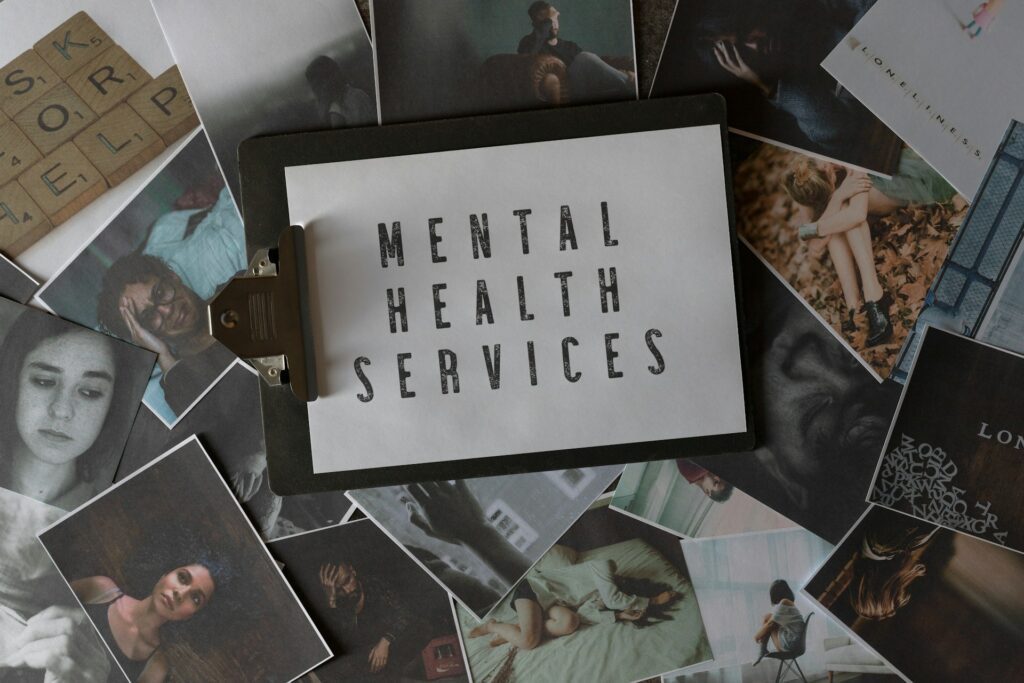
In today’s rapidly evolving world, conversations around mental health are becoming more frequent, yet the stigma surrounding it persists.
For many, mental health remains a topic shrouded in misunderstanding, leading to hesitancy in seeking necessary psychological support.
This blog aims to break down the barriers to understanding mental health, highlighting the importance of mental wellness, and providing practical steps for seeking help.
The Reality of Mental Health Issues
Mental health issues are more common than many realize, affecting one in four people globally according to the World Health Organization (WHO).
The impact of these conditions is profound, often leading to significant distress and impairing daily functioning. To comprehend the prevalence and impact fully, it’s crucial to recognize the variety of common mental health conditions, which include:
-
- Anxiety: Characterized by excessive worry and fear, impacting daily activities.
-
- Depression: Involves persistent feelings of sadness and loss of interest.
-
- Bipolar Disorder: Marked by extreme mood swings from highs (mania) to lows (depression).
-
- Schizophrenia: A severe disorder affecting thinking, emotions, and behavior.
Each condition presents unique challenges, and understanding their signs and symptoms can facilitate timely intervention and psychological support, ultimately improving quality of life.
Society’s role is pivotal in shaping attitudes toward mental health. Media representations, cultural beliefs, and social norms can either perpetuate stigma or foster understanding.
By promoting open conversations and creating a supportive environment, stigma reduction, and building a more accepting society.
Breaking the Stigma Surrounding Mental Health
Breaking the stigma surrounding mental health is imperative for fostering a more inclusive and supportive society. Stigma, often rooted in ignorance and fear, serves as a significant barrier to individuals seeking help.
This stigma can lead to social exclusion, discrimination, and reluctance to access essential mental health services. To challenge and dismantle these harmful perceptions, consider the following key points:
-
- Educate Yourself and Others: Understanding the realities of mental health issues is the first step toward stigma reduction. Education helps dispel myths and misinformation.
-
- Share Personal Stories: Personal accounts of mental health struggles and recovery can humanize these issues and foster empathy. This openness encourages others to seek help and support.
-
- Advocate for Awareness: Public awareness campaigns and health education play critical roles in challenging stigma. Advocacy efforts promote mental wellness and create a culture of understanding.
-
- Use Respectful Language: Language profoundly influences our perceptions. Using non-judgmental and respectful language when discussing mental health can help create an encouraging environment. Avoiding derogatory terms and stereotypes is crucial.
By addressing these elements, we can contribute to a culture that prioritizes mental wellness and psychological support, ultimately breaking down the barriers imposed by stigma.
Seeking Help for Mental Health
Acknowledging the need for help is the first step towards mental wellness. It’s important to recognize when feelings of sadness, anxiety, or stress become overwhelming and interfere with daily life.
Understanding that seeking help is a sign of strength, not weakness, can empower individuals to take action and prioritize their mental health. Various types of health professionals can provide support, including:
-
- Psychologists: Offer therapy and counseling services, focusing on behavioral interventions.
-
- Psychiatrists: Specialize in diagnosing and treating mental illnesses, often through medication management.
-
- Counselors: Provide guidance and support for coping with life challenges and emotional issues.
-
- Social Workers: Assist with accessing resources and offer counseling and crisis intervention.
Finding the right fit may require some research and exploration, but the benefits of professional support are invaluable. Therapy is a key component of health treatment, with several therapeutic approaches available:
-
- Cognitive-behavioral therapy (CBT): Focuses on changing negative thought patterns and behaviors.
-
- Dialectical behavior therapy (DBT): Combines cognitive-behavioral techniques with mindfulness strategies.
-
- Psychodynamic therapy: Explores unconscious processes and past experiences to understand current behavior.
Consulting with a health professional through this website can help determine the most suitable therapy for individual needs.
The Role of Support Systems
Having a robust support system is crucial for mental wellness, encompassing several essential components:
-
- Family and Friends: These core relationships provide emotional support, encouragement, and practical assistance. It’s vital to maintain open communication and practice active listening to effectively support loved ones facing mental health challenges. Offering empathy and understanding, without judgment or unsolicited advice, strengthens these bonds.
-
- Support Groups and Communities: These platforms allow individuals to connect with others who share similar experiences, fostering a sense of belonging and mutual support. Whether online or offline, these groups help reduce feelings of isolation and offer a safe environment for sharing and healing.
-
- Professional Support Networks: Engaging with health professionals, such as therapists, psychiatrists, and primary care physicians, enhances the support system. Regular check-ins with these experts ensure continuity of care and ongoing support. Additionally, collaboration among different professionals can lead to a more comprehensive and effective treatment plan.
A multifaceted support system and therapy play a pivotal role in maintaining mental health, providing a blend of emotional, communal, and professional support.
Maintaining Mental Wellness
Maintaining mental wellness is paramount for leading a balanced and fulfilling life. Incorporating self-care practices into daily routines can significantly enhance overall well-being. Here are key strategies to prioritize wellness:
-
- Self-Care Practices: Engage in activities such as exercise, meditation, journaling, and hobbies. These practices help manage stress, boost mood, and foster a positive outlook on life.
-
- Mindfulness and Meditation: Focus on the present moment and cultivate non-judgmental awareness of thoughts and feelings. Regular mindfulness practice can reduce stress, improve emotional regulation, and enhance overall mental health.
-
- Healthy Lifestyle Choices: Maintain a balanced diet, engage in regular physical activity, ensure adequate sleep, and avoid substance abuse. These choices support brain function, improve mood, and increase resilience to stress.
By adopting these strategies, individuals can effectively manage stress, improve emotional regulation, and enhance their mental health. Making small, sustainable changes in daily routines can lead to significant improvements in overall mental wellness.
Accessing Resources and Support
Accessing resources and psychological support is essential for mental health. The Internet offers a wealth of information, self-help tools, and access to professional services. Many organizations provide free or low-cost resources, including:
-
- Mental health screenings
-
- Educational materials
-
- Online support groups
Utilizing these online resources can complement professional treatment and enhance mental wellness. Local community services, such as mental health clinics and non-profit organizations, also offer valuable support, including:
-
- Crisis intervention
-
- Educational programs
These services help individuals receive the care they need, regardless of financial or geographical barriers. Hotlines, crisis centers, and emergency services provide life-saving support and are critical steps towards recovery.
Conclusion to Mental Health Awareness
Breaking the stigma surrounding mental health and seeking help is essential for overall well-being.
By understanding health issues, recognizing the importance of seeking support, and building a strong network of resources, individuals can take proactive steps toward mental wellness.
Remember, mental health is a vital aspect of our lives, and prioritizing it is a sign of strength and resilience.
For those looking to further explore psychological support, consider visiting this website for more information and resources. Empower yourself with knowledge and take the first step towards a healthier, happier life.












